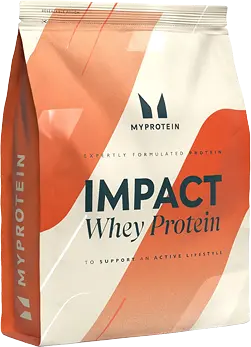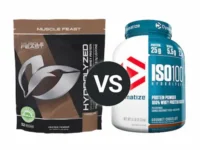Knowledge BaseYou're Questions Answered
Is whey protein powder a complete protein?
Whey protein powder is a widely used dietary supplement derived from whey, the liquid portion of milk that separates during cheese production. It is highly valued for its fast absorption and rich amino acid profile, making it a popular choice for athletes, bodybuilders, and individuals seeking to increase their protein intake. A crucial factor in assessing the quality of a protein source is whether it is a complete protein, which means it contains all nine essential amino acids that the body cannot synthesize and must obtain from the diet.
Whey Protein Powder as a Complete Protein
Yes, whey protein powder is a complete protein. It contains all nine essential amino acids necessary for human health, including histidine, isoleucine, leucine, lysine, methionine, phenylalanine, threonine, tryptophan, and valine1. The presence of these amino acids in sufficient amounts makes whey protein powder an excellent source for supporting muscle growth, repair, and overall bodily functions.
Nutritional Benefits of Whey Protein Powder
- High Biological Value (BV): Whey protein has a high biological value, which measures the efficiency with which the body can utilize the protein. This makes it one of the most effective proteins for muscle protein synthesis2.
- Rich in Branched-Chain Amino Acids (BCAAs): Whey protein is particularly high in BCAAs, such as leucine, isoleucine, and valine, which are crucial for muscle repair and growth. Leucine, in particular, plays a key role in stimulating muscle protein synthesis3.
- Rapid Absorption: Whey protein is quickly digested and absorbed, making it ideal for post-workout consumption to support immediate recovery and muscle repair.
- Variety of Forms: Whey protein is available in various forms, including concentrate, isolate, and hydrolysate, each offering different levels of protein purity and lactose content.
Usage and Considerations
Whey protein powder can be incorporated into the diet in various ways, such as shakes, smoothies, and as an ingredient in baking and cooking. It is especially beneficial for individuals looking to support muscle growth and recovery due to its rapid digestion and complete amino acid profile. However, those with lactose intolerance or dairy allergies should be cautious, as whey protein contains lactose. Whey protein isolate, which has lower lactose content, may be a better option for such individuals.
- Phillips, S. M., & Van Loon, L. J. C. (2011). Dietary protein for athletes: From requirements to optimum adaptation. Journal of Sports Sciences, 29(sup1), S29-S38.
- Smith, K., Reynolds, N., Downie, S., Patel, A., Rennie, M. J., & Kumar, V. (2018). Branched-chain amino acid ingestion stimulates muscle myofibrillar protein synthesis in young men. Journal of Nutrition, 148(3), 368-376.
- Wolfe, R. R. (2015). Update on amino acid requirements: The challenge of determining the amino acid requirements for human adults. The Journal of Nutrition, 145(8), 2030S-2038S.
Related Questions

Your Answer
We are a participant in the Amazon Services LLC Associates Program, an affiliate advertising program designed to provide a means for us to earn fees by linking to Amazon.com and affiliated sites.






